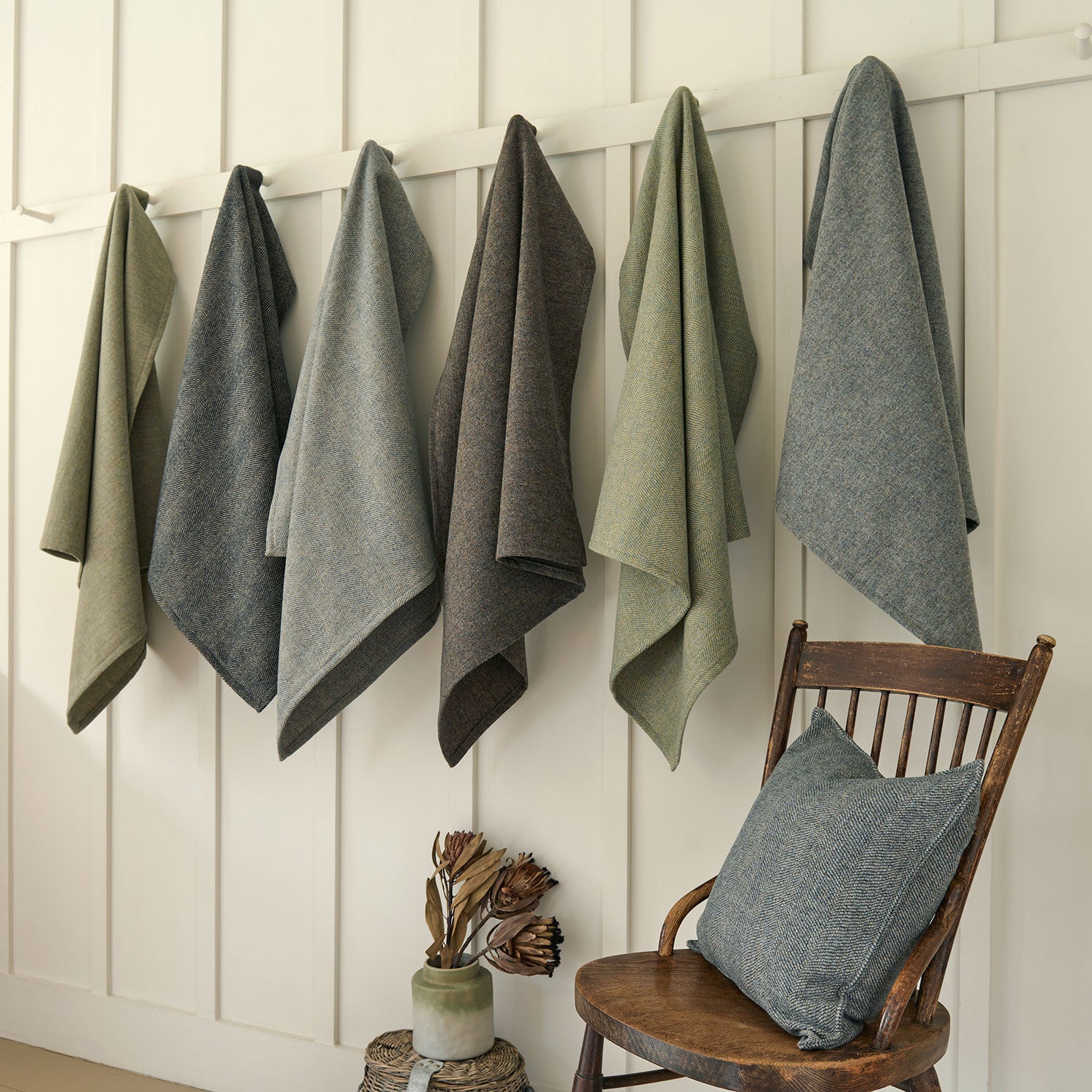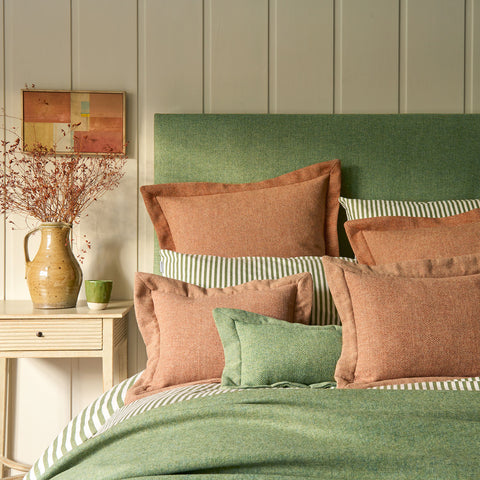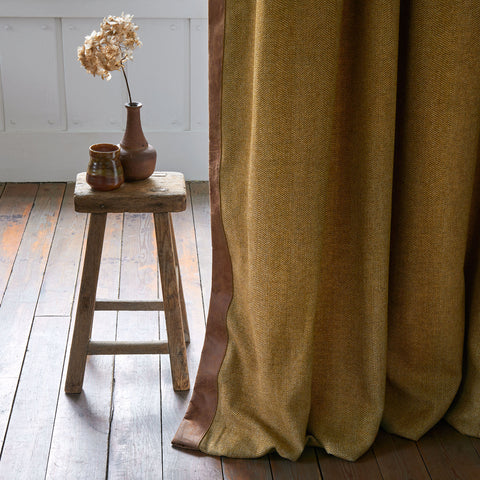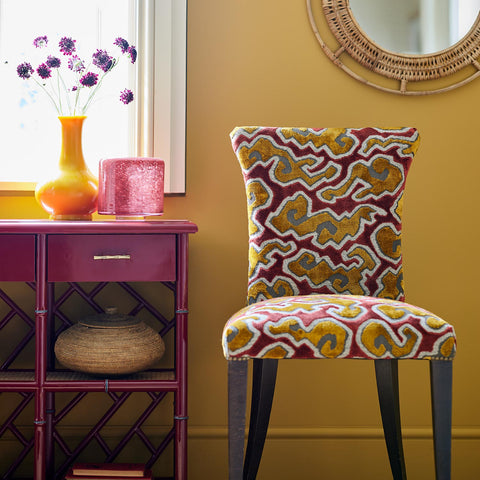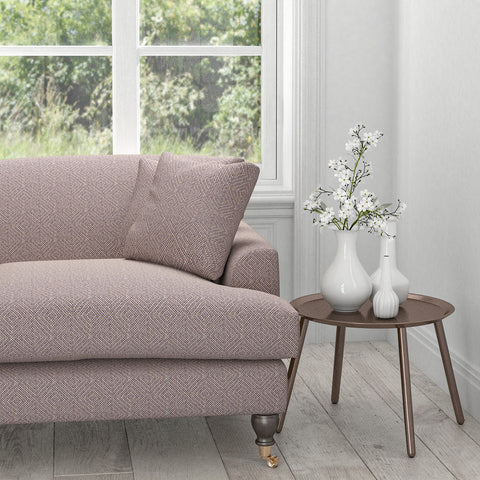Wool upholstery fabric has ‘slow design’ superpowers. Totally natural, renewable, biodegradable and with a hardwearing longevity, it reigns supreme to keep us and our homes warm, cool (yes, you read that right), moisture free, and, above all, uber fashionable.
It’s all down to the sheep breeds that for generations have grazed highlands and downlands. Their naturally grown fleeces are sheared annually, cleaned, carded, spun and woven to create a unique wool cloth that is the epitome of timeless and beautiful upholstery, window treatments and accessories. Each breed brings with it its own unique yarn signature, from short and dense to long and crimped.
At Linwood, we believe in only the best for your home. Our pure wool fabric collections and blends are second to none; paying homage to the fact that interiors should be created elegantly, thoughtfully and responsibly. Come with us to understand wool’s comforting and durable qualities and its many designs, how to use it in a range of interiors’ projects, plus its easy care and maintenance.
The unique qualities of wool upholstery fabric
Why does wool make the ideal choice for fabric upholstery? Well, its ‘beautility' (that’s short for ‘beautiful utility’ as coined by The Sunday Times recently) is all thanks to four key reasons…
Firstly, durability and longevity. Wool fibres are made up of a protein called keratin that results in a strong and complex structure. Woven wool fabric lasts for years as a result, making it ideal for high-traffic seating, such as lounge and dining chairs or sofas, or as curtains. According to British Wool, ‘Wool can endure wear and compression, and its natural bulk allows resistance to crushing and matting providing better appearance retention and resulting in less frequent replacement and waste.’ Shown here is Tay plain fabric, from the new Balvenie pure wool collection, a hard-wearing pure wool weave available in 19 hues.
Secondly, everyday resilience. Thanks to its inherent water-repelling DNA, wool upholstery is naturally stain resistant. Piling on the fabric is rare. Reassuringly, it is also slow to burn because of its high moisture and nitrogen content.
Comfort and insulation are the third reasons for opting for wool fabric on upholstery or other soft furnishings. Wool fabric has a natural ability to regulate temperature, providing heat-trapping properties in winter and cooling ones in summer. ‘Wool not only naturally absorbs humidity and moisture within the home but also common airborne pollutants such as formaldehyde, sulphur dioxide and nitrogen oxides (known as VOCs),’ adds British Wool.
And, finally, conscious consumption is an important deciding factor. Favour wool fabric for its eco-friendly attributes, including its renewable source, biodegradability and role in regenerative agriculture. There are also recycled fabric options, such as Lana that is spun from soft Italian wool and available in a rainbow of beautiful plains such as Silver, as shown on this sofa by The Grey Sofa.
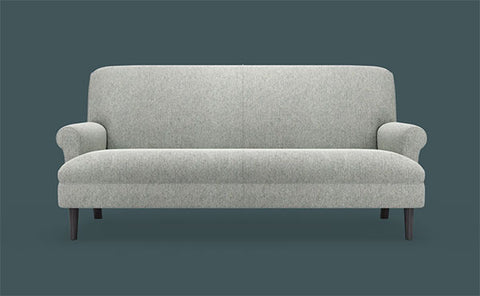
Choosing the right wool fabric for your upholstery project
The beauty of wool fabrics lies in the multitude of designs on offer. The weave technique dictates the pattern result: a relaxed tartan check, such as Beachcomber Southerness, is made up of varying horizontal and vertical bands of width and colour; while a smart melton is a fabric made in twill form with a diagonal pattern; a tailored houndstooth is a two-colour broken check; and the distinctive herringbone is a zig zag column design, such as Foss.
It pays to consider fabric weight and texture. Some wools have a heavy and chunky handle and thus hang fluidly and crease-free on curtains (there may be no need for a lining thanks to their density); others are softer-to-the-touch, perhaps better for lounge seating and cushions (try Faroe with a touch of cotton and linen in its blend).
People often assume that wool fabrics are limited to the classic light and dark neutral colourways, such as grey, black, navy, brown and sand. These are handsome choices that will stand the test of time and work as good foils for more elaborate patterns, but you can also up the tempo and add transitional season refreshes with feel-good lime, cerise, tangerine orange and azure too.
Creative uses of wool upholstery fabric in home décor
Think creatively about how and where to use wool fabrics. Statement furniture, such as sofas, armchairs and headboards are your first ports of call. Just like a forever suit, smart wool fabric, such as herringbone, tartan or check, is a good investment and will always look at home on a classic buttoned or scrolled armed sofa or armchair. Add contrasting piping for a bohemian edge – think grey or navy as the hero fabric with a pop of red perhaps. Look too to woven fabric headboards with dashing silhouettes, from curvaceous to regal; finished with chrome or brass studs. Ottomans and dining chairs are the perfect spots for unexpected patterns, so head to an eye-catching wool fabric to bring bravado into a scheme. Shown is Kumo Flame from the Odyssey collection with its jazzy jacquard design.
Interior designers are mad for wool fabric window treatments, bed canopies and pelmets right now. Consider navy blue four poster curtains for a five-star bedroom; a cosy checked cottage-style door curtain; and dapper herringbone Roman blinds edged with leather trims for city apartments. Applying wool to walls as an alternative to wallpaper creates a true cocoon-like experience – perfect for a snug, library or movie room.
Accent wool fabrics in plains, textures or contrasting patterns are dashingly refreshing. Swap in tartan wool cushions for a seasonal living room update, plump for a bed-scape of decorative tweed pillows and bolsters or sew bench and banquette cushions for kitchen diners. Finally, to add further dimension and warmth, adorn a much-loved table lamp with a textured wool shade and layer up with blankets and throws.
Wool upholstery fabric care and maintenance
Follow these care guidelines to maintain the natural beauty of wool upholstery. Shown is the pretty Westray Lavender.
• Vacuum wool fabric upholstery regularly to stop dust from collecting.
• Follow the care instructions. Dry cleaning only is recommended for wool.
• Keep upholstery fabrics out of direct sunlight, excessive moisture or heat to avoid any adverse effects.
• Turn cushions and pillows regularly to maintain their shape and reduce need for cleaning.
• Blot any spills immediately and call-in professional cleaning services if needs be.
We hope this expert advice has helped you appreciate the aesthetic and functional benefits of this versatile fabric for upholstering furniture, fashionable curtains and seasonal soft furnishings. For a blend of comfort, style and sustainability, explore Linwood’s new Balvenie fabric collection for inspiration. Woven in Lancashire using 100% pure wool, Balvenie takes its colours from the serene, ageless hues of the English countryside making it the perfect range to start your design journey.
